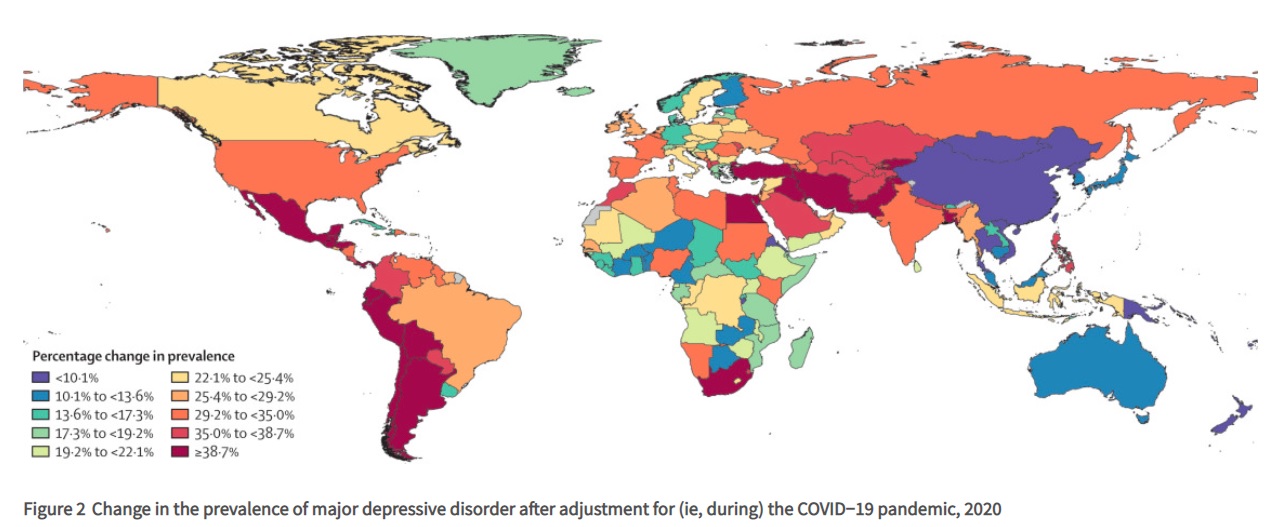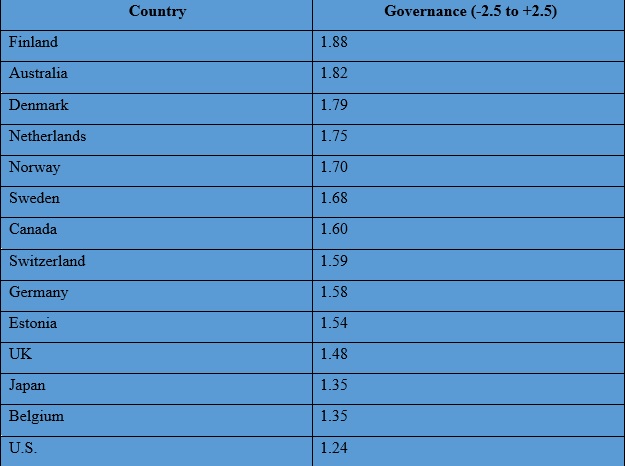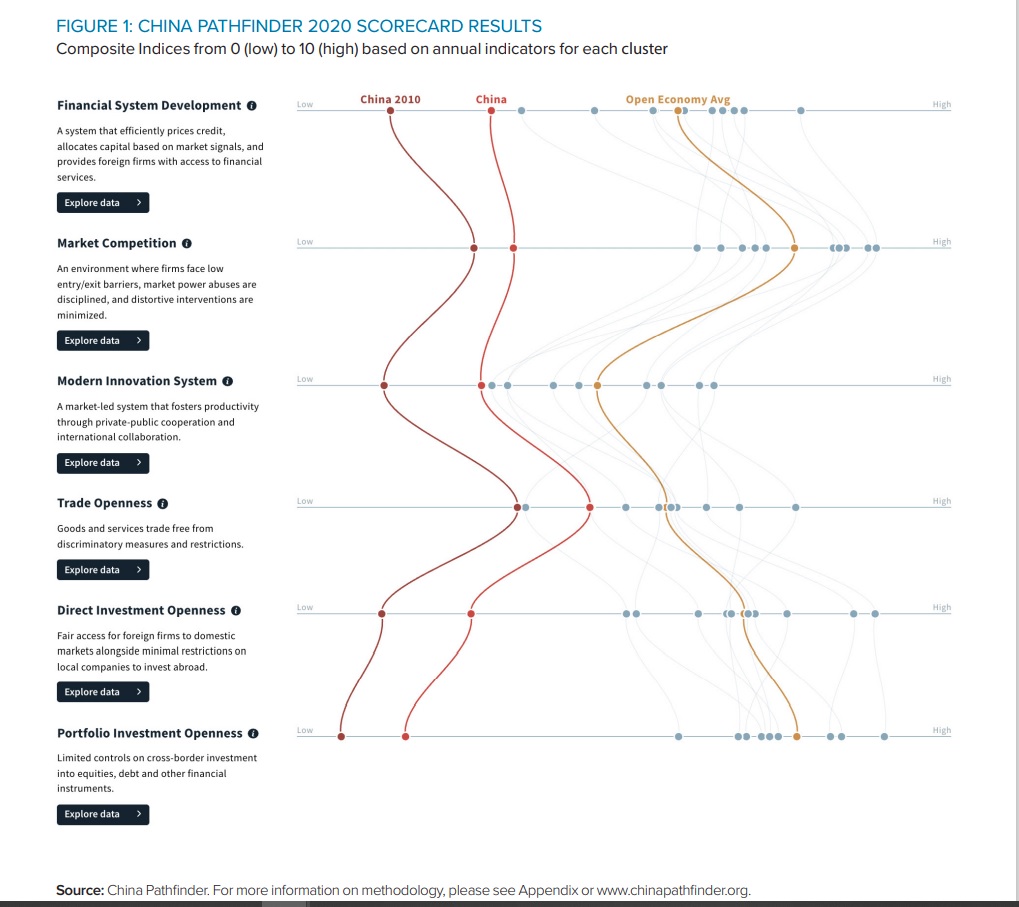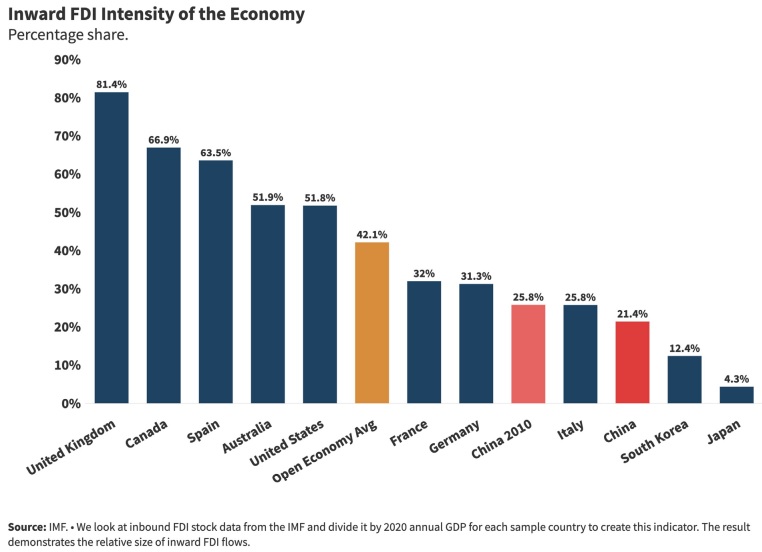We watched the Young Fresh Fellows on the stage of the Paramount Theater Tuesday night–a band we saw 30 years ago at the legendary 9:30 Club in a then rough area of Washington DC–a little bit like Dave at the end of 2001: A Space Odyssey, having an out of body experience seeing himself as an old man. We were there for the main act, Wilco, who we’ve seen nearly a dozen times over the years but each performance new as their sound and sensibilities evolve.
While they performed their song Impossible Germany we were reminded of foreign policy wags in recent years claiming that German Chancellor Angela Merkel is the leader of the free world. But for our money, we’d give that title to President of Taiwan Tsai Ing-wen, whose recent remarkable article in Foreign Affairs magazine was as clarion and practical a call for the stakes of freedom as any we have seen in many a year, perhaps not since we lost 37.5 percent of our hearing attending concerts at the 9:30 Club. The last half decade has seen challenges from within and without to freedom.
But as President Tsai writes, “Imperfect though it may be, democracy has become a nonnegotiable part of who we are,” or at least of some of us. The last 18 months of Covid have been ones of isolation within and without. But concerts are back and like Wilco’s Jeff Tweedy we chew gum for something to do while discussing Covid’s affect on mental health, who governs the best and how market oriented is China. It’s this week’s International Need to Know, the Old Fresh Fellow of international information and data.
- Chat & Chowder with Sam Kaplan | Challenging China: Smart Strategies for Dealing with China in the Xi Jinping Era — WorldBoston
- Phoenix Committee on Foreign Relations – How China is Changing the World Order (pcfraz.org)
We’re off next week but back on October 28th. Please fix the world while we’re gone.
Without further ado, here’s what you need to know.
Covid, Wilco and Mental Health
Wilco was our first indoor concert since the Trombone Shorty Mardi Gras Threauxdown in New Orleans circa February 2020. That’s the longest period of not seeing a concert since we were a teenager (so ten years ago). Such isolation from music, and social interaction, is perilous. In addition to its toll on physical health and the economy, Covid is a grim reaper on mental health as well. A study published in the Lancet last week focused on the pandemic’s impact on mental health and it indeed had a negative effect. It was bad across the board but “Females were affected more by the pandemic than males…and younger groups were more affected than older groups.” Locations with the highest infection rates, more lockdowns and higher death rates experienced “the greatest increases in prevalence of major depressive disorder and anxiety disorders.” In other words, containing Covid meant fewer people sick and dying but also fewer mental health problems. And yet we’re somewhat confused by this assertion combined with the data on countries. As you can see in the map below, China, Vietnam, New Zealand and Taiwan all did well in handling Covid and consequently suffered fewer mental health problems but they all had strict lockdowns of one sort or another. Was it because the lockdowns were strict and effective, and thus short, that mental health did not suffer as much in these places? We are either having mental health problems ourselves or something isn’t computing in this study. At any rate, get vaccinated and to a concert is our learned health advice.
Who Governs Well
A few weeks ago we noted the scandal of the World Bank’s Doing Business Report which purported to measure how easy it is to do business in a country. As it turns out, countries such as China and the United Arab Emirates were exerting pressure to move up in the rankings. The World Bank has ceased conducting that work. But thanks to the most elegant banker in Seattle, we recently learned of the World Bank’s Worldwide Governance Indicators. This measurement tool looks at “six broad dimensions of governance for over 200 countries,” one of which is “regulatory quality.” The methodology is to summarize “the views on the quality of governance provided by a large number of enterprise, citizen and expert survey respondents in industrial and developing countries.” So far China has not influenced these rankings to the best of our knowledge. We will delve into this some more but for today we looked at a variety of wealthy countries and how they rank. As you can see in the chart below, Finland ranks first, followed by Australia, Denmark, the Netherlands and Norway. The U.S. is last, which confirms what we write in Challenging China. And yet regulatory reform is of little interest to either the Republican or Democratic Party currently, providing us even more concern for the direction of America.
Regulatory Quality, World Bank Governance Indicators
China Corner: Is China Becoming Less Market Oriented?
In recent months, we have seen China crackdown on consumer tech, among other industries (plus “sissy men”. Xi is very concerned about them although not as much as about Uyghurs. But a “sissy” Uyghur? That might be his greatest fear). For some this is cause for alarm, others interpret the actions as part of China’s efforts to support its industrial policy, that is to drive capital and talent into AI, high end manufacturing, robotics and more. But overall, is China becoming more market oriented or less? The good folks at the Rhodium Group and Atlantic Council attempt to measure this in their China Pathfinder Annual Scorecard. They look at “how China has performed against open market economies in 6 key areas: financial system; competition; innovation; trade; direct investment; and portfolio investment.” They find, as you can see in the first chart below, that China has made progress in all six areas, though still lags far behind open market economies. China’s least amount of progress is in market competition and openness to portfolio investment. It will be interesting to checkback next year on how China’s various crackdowns affect these rankings, if at all. We will note, and you can see in the second chart below, that China is still not as open for inward investment as many other countries.





